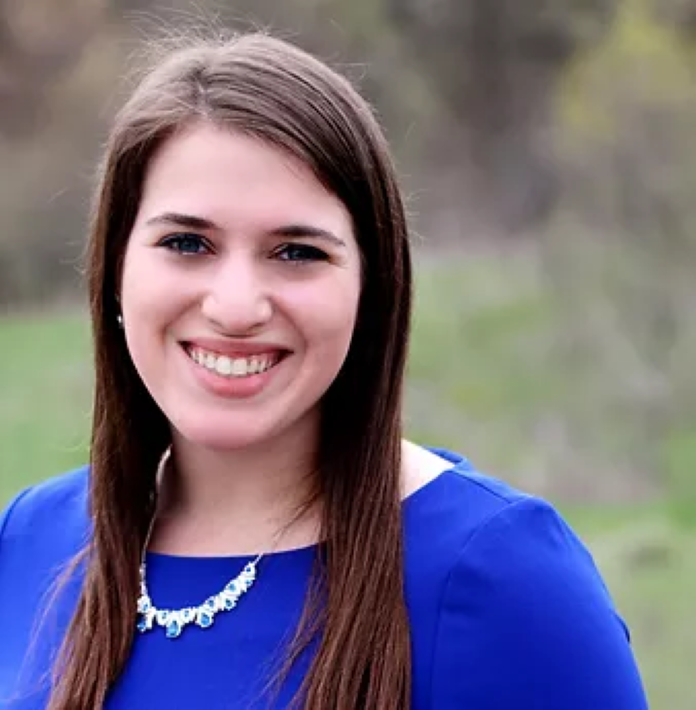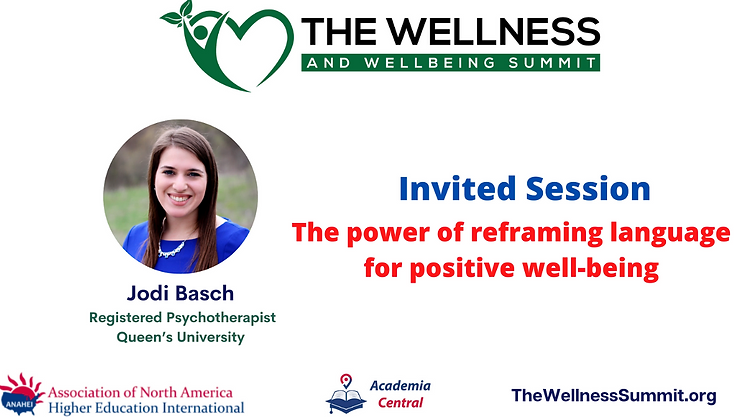The power of reframing language for positive well-being

Session Title: The power of reframing language for positive well-being
Speaker: Jodi Basch, Registered Psychotherapist, Queen’s University
Watch the session: https://app.knowmia.com/iD26

Short description: This presentation will highlight the importance of reframing language to positively impact well-being. When individuals experience a difficult situation, their brains can not always accurately represent what is happening in their system, resulting in a very limited vocabulary on the situation they are facing. As such, individuals tend to experience a great deal of pressure to describe what they are feeling, make sense of their experience, and identify how they will overcome the challenge. This pressure can negatively impact their mental health and lead to feeling “stuck” in their experience. Moreover, when individuals label their emotions, there is a bias to label them more negatively. Human brains are wired to think of the negative in multiple situations, and this is no different with vocabulary. Individuals have to actively make changes to rewire their brains to think about the positive. When individuals change the language that they use to describe their experience, they can also change the emotions involved. This reframing has the potential not only to help them externalize their challenges, but take some power back in a situation that may have previously felt powerless. This presentation will explore the limited vocabularies that individuals have and highlight how other words and phrases may be more representative of the emotions they experience day-to-day. They may be able to replace words with something that is more characteristic of what they are experiencing, which may, in turn, take off the pressure and reduce the intensity of the emotions. If they expand the words that they use and consider replacing one that may not be fully representative of their experience with another word, they can actually change their relationship with the situation. When individuals can reflect on the language that they may use, they can identify areas in which they can thicken their vocabulary to also thicken their experience.
Bio: Jodi Basch is a Registered Psychotherapist who helps individuals navigate traumatic experiences, grief, anxiety, depression, life transitions, relationship challenges, chronic pain, illness, and workplace injuries. She has experience working with students, community members, and first responders. She also works as a Psychometrist, conducting psychological and psychovocational assessments for individuals who have been involved in motor vehicle accidents or sustained a workplace injury. Jodi is also a PhD candidate at Queen’s University studying resilience in post-secondary student leaders as they transition from high school to university. She is specifically focused on how and why students do well despite the challenges that they experience. She has experience as an instructor in the Faculty of Education, teaching the course Psychological Foundations of Education. She was recently selected as one of 20 Classroom Champions of Mental Health for Queen’s University, for her support and work to advance the mental wellbeing of her students. Moreover, in 2021, Jodi received the Agnes Benidickson Tricolour Award because of her dedication to supporting students’ mental health throughout the pandemic and for ensuring accessible supports for each student.